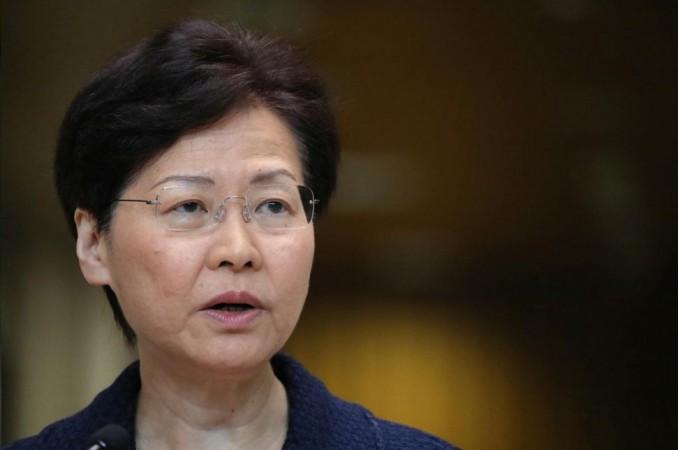
Hong Kong Chief Executive Carrie Lam on Tuesday, August 20, offered to hold talks with pro-democracy protestors but refused to commit to withdraw the contentious extradition bill that led to the political crisis.
The leader spoke of efforts to restore peace and provide a "way-out" in a press conference and announced, "We will immediately start the work to establish a platform for dialogue. This dialogue, I hope, will be based on a mutual understanding and respect and find a way out for today's Hong Kong."
She called for a 'sincere dialogue' with all sections of the society and said: "All my principal officials and I are committed to listening to what the people have to tell us."
Mentioning the peaceful mass demonstration on Sunday where an estimated 1.7 million protesters gathered and walked in the pouring rain, Lam said: "I sincerely hope that this was the beginning of society returning to peace and staying away from violence."
However, on the main demand of a complete withdrawal, she refused to fully commit and instead said, "I can give you this very clear commitment at the political level, that the bill is dead. There is no plan to revive this bill, especially in light of the public concerns."
Critics have said that her repeated usage of the term "dead" instead of "withdrawal" indicate legal manoeuvres through which the bill could be revived in the future.
Activists and lawmakers have put forward five demands -- the bill's withdrawal, an independent investigation into police brutality, a stop in describing the protests as "rioting", Lam's resignation from the governing body and resuming political reform since the 2014 Umbrella Movement.
The police have been criticised for its increasingly violent suppression of demonstration. Thousands of protesters held a demonstration at the city's airport to protest against the police for injuring a female protestor who was shot in the eye. More than 700 demonstrators have been arrested by the Hong Kong police since June.
The administration is considering ways to set up a platform to begin discussions with young protesters, a source close to the government told South China Morning Post.
"It is a matter of how," the source said. "Should the government lead the platform or invite a youth organisation to do it and let the government play a key role? Who should join the platform? These are questions to be solved."
Hong Kong is witnessing the biggest political crisis against the proposed extradition bill that would allow China to pursue their political targets residing in communist regime ruled city.
The Hong Kong political crisis is the biggest challenge faced by Chinese leader Xi Jinping since he came to power in 2012.
Under the 'one country, two systems' formula that was structured in 1997 after China re-integrated Hong Kong from the British colony, guaranteed freedom to Hong Kong included the right to an independent judiciary and the right to protests. Beijing's increasing clampdown of these freedoms has threatened Hong Kong's sovereignty.
Social media platforms such as Twitter and Facebook on Monday revealed that they dismantled Chinese campaigns that sought to undermine the pro-democracy demonstration.
Further protests are being planned in the next few days by various groups, including one by MTR subway workers on Wednesday, secondary school students on Thursday and another by accountants on Friday, according to Reuters.















